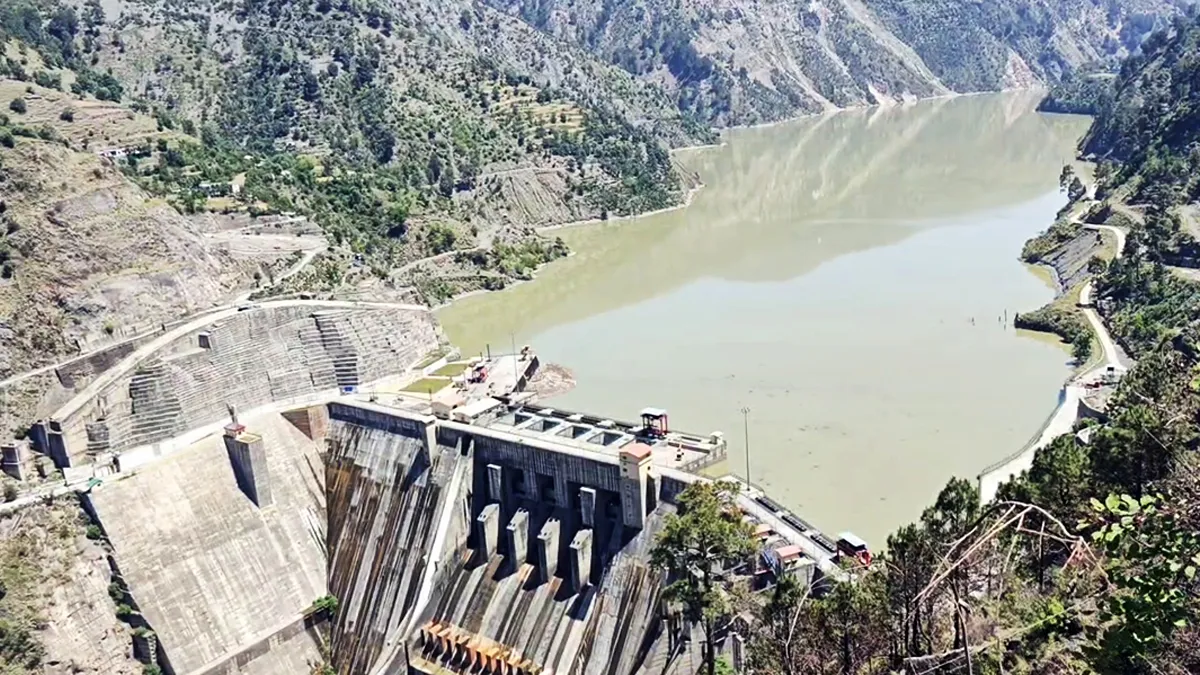Lahore: The Pakistan Commission on Indus Waters (PCIW) has compiled and submitted a detailed report to the federal government regarding significant violations of the Indus Water Treaty (IWT) by India.
This comes at a time when Pakistan has decided to approach the United Nations Security Council (UNSC) to brief them on the rising tensions with India.
According to a source familiar with the development, the report highlights several major violations, particularly concerning the construction of hydroelectric plants on the western rivers—Jhelum and Chenab—by India.
The violations outlined in the report include:
Hydroelectric Projects on Western Rivers:
India has been constructing multiple hydroelectric plants on the western rivers, which are under Pakistan’s full control according to the treaty. These projects include:
A 450 MW project in the Chenab basin, which began in 2005
A 330 MW Kishan Ganga Hydropower Project on the Jhelum River, which began in 2010
A planned 850 MW Ratle Hydropower Project, which has yet to start but is still part of the ongoing dispute.
Lack of Transparency and Cooperation: India has reportedly failed to provide critical information on the release of floodwater from its dams on the rivers Ravi and Satluj, particularly during the monsoon season.
This lack of cooperation further violates the provisions of the IWT.
Suspension of the Treaty: A significant breach noted in the report is India’s recent decision to hold the treaty in abeyance, which Pakistan considers a serious violation.
This action was allegedly taken by India in response to the Pahalgam attack, a move that Pakistan argues is not permissible under the terms of the treaty.
Previous Disputes and International Arbitration:
The report also reminds that in past disputes regarding the design and construction of these hydroelectric plants, India has not succeeded when Pakistan raised objections.
These matters have been taken to international forums, such as the Permanent Court of Arbitration (PCA), which has ruled in Pakistan’s favor in several cases.
Currently, the proceedings on the Ratle Hydropower Project are still ongoing at the PCA.
Context of the Indus Water Treaty: Signed in 1960, the IWT grants Pakistan full control over the waters of the western rivers (Indus, Jhelum, and Chenab), while allowing India to use the waters of the eastern rivers (Ravi, Beas, and Satluj).
The treaty permits India to construct run-of-the-river hydroelectric projects and small storage facilities for irrigation on the western rivers, provided Pakistan is consulted during the design phase.
However, India has pushed to build additional projects, raising tensions between the two nations.
Call for International Intervention: Given the ongoing violations, the PCIW has recommended that the Pakistani government urgently brief the UNSC about India’s actions and also approach the World Bank.
Read More: India Suspends Indus Waters Treaty, Seals Attari Border Unilaterally Without Proof
The goal is to challenge India’s unilateral decision to suspend the treaty and to have it reinstated in full compliance with the agreement.
The report underscores the escalating tension between Pakistan and India over the IWT.
The violations listed in the report, especially concerning the construction of hydroelectric projects and the failure to cooperate on water management, are likely to deepen the rift between the two nations.
If these issues are not resolved, they could have severe repercussions for both countries and the broader region.
Also Read: Water Shortage to Reach 60%, IRSA on Provincial Water Sharing
Pakistan’s efforts to raise these concerns in international forums, such as the UNSC and the World Bank, could play a pivotal role in addressing the situation.









